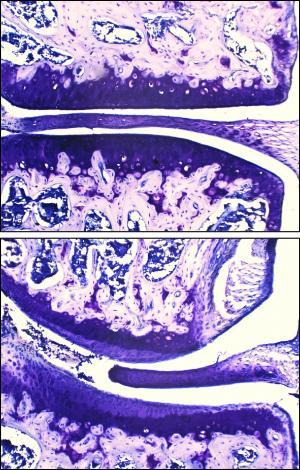Genomics and Stratified Medicine
CiTI intends to exploit opportunities in Genomic Medicine to stratify medical research. This approach will be invaluable for complex diseases, particularly those affected by multiple morbidities. Current research areas include:
Stratified Medicine for Arthritis: Prof Pitzalis has utilised MRC Cohort Strategic Funding (£700,000) to create and lead the Pathobiology of Early Arthritis Cohort (PEAC), a consortium across 5 national centres of excellence. This has created a unique national resource (of ultrasound directed synovial biopsies in rheumatoid arthritis) and has led to the development of a major international partnership with Genentech-Roche.
In 2012, Arthritis Research UK awarded QMUL a grant to fund a new Experimental Arthritis Treatment Centre in London (PrincipaI Investigator; Prof Pitzalis, Co-Applicants; Prof Sasieni, Prof Lemoine, Prof Perretti and Prof Caulfield). The Centre is currently testing new therapies in clinical trials and analysing the economic impact of using alternative, less expensive drugs to treat rheumatoid arthritis.
Most recently Prof Pitzalis, together with the University of Manchester, was awarded funding to establish the MRC/Arthritis Research UK MATURA Consortium for Stratified Medicine (£4.9M). This programme, involving multiple international industrial partnerships, will identify biomarkers of response / resistance to current synthetic and biological disease modifying anti-rheumatic drugs (DMARDs). This unparalleled biomedical resource will form the basis for: a) the identification of pathways (particularly in resistant patients) for the development of novel targeted therapies and b) the development of treatment algorithms and companion diagnostics for patient stratification and personalised healthcare. Moreover, Prof Pitzalis is leading a Stratified Medicine Programme funded by the NIHR (£5.9M) to test whether synovial pathobiology can stratify biologic response in rheumatoid arthritis.
 Genomics at QMUL
Genomics at QMUL
Cardiovascular Genomics:
Since 1996 Prof Caulfield has been National Co-ordinator of the MRC British Genetics of Hypertension (BRIGHT) Study on behalf of 5 UK Universities. He also led the hypertension study within the Wellcome Trust Case Control Consortium and has since formed and co-leads the Global BP Gen Consortium and International Consortium for Blood Pressure Genome-Wide Association Studies, which combined the talents of 354 scientists from 224 Institutions in 24 countries. This work has now identified over 80 genes for high blood pressure and 5 genes influencing statin response.
Genomics England (GeL) was set up by the Department of Health (DoH) and is led by Prof Mark Caulfield, Co-Director of the William Harvey Research Institute. This flagship project will sequence 100,000 whole genomes from NHS patients and their families in an effort to create a new genomic medicine service, whereby genomic sequence data is combined with medical records to provide a ground-breaking resource that will that will transform NHS patient care and enable new medical research. GeL provides a unique opportunity for further advancements in cutting edge science and training in genomic medicine.
Genomics Medicine is a major strength of QMUL as a whole and one of the research themes of the Life Sciences Initiative with a Centre in Computational Biology (Leads; Prof Bessant and Prof Chelala) and a Centre for Genomic Health (leads; Prof Rakyan and Dr Prof Deloukas).


